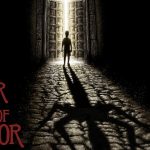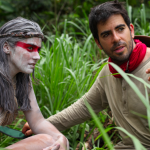“𝙏𝙝𝙚 𝙒𝙖𝙡𝙠𝙞𝙣𝙜 𝘿𝙚𝙖𝙙”

𝙎𝙪𝙜𝙜𝙚𝙨𝙩𝙚𝙙 𝙫𝙞𝙙𝙚𝙤𝙨 𝙛𝙤𝙧 𝙮𝙤𝙪:
𝙎𝙪𝙜𝙜𝙚𝙨𝙩𝙚𝙙 𝙫𝙞𝙙𝙚𝙤𝙨 𝙛𝙤𝙧 𝙮𝙤𝙪:
𝙎𝙪𝙜𝙜𝙚𝙨𝙩𝙚𝙙 𝙫𝙞𝙙𝙚𝙤𝙨 𝙛𝙤𝙧 𝙮𝙤𝙪:
Introduction
The Walking Dead is one of the most influential and popular television series of the 21st century, based on the comic book series by Robert Kirkman. Premiering in 2010 and running for 11 seasons until 2022, the show captivated audiences with its post-apocalyptic world, exploring themes of survival, humanity, and moral ambiguity. Set in a world where a zombie outbreak has devastated society, the series focuses on the lives of survivors who must navigate not only the undead but also the dangers posed by other human groups. Through its exploration of complex characters, intense drama, and philosophical questions about life and morality, The Walking Dead has left a lasting impact on the zombie genre and pop culture.

Plot Overview: Survival in a Broken World
The Walking Dead begins by introducing Rick Grimes (Andrew Lincoln), a sheriff’s deputy who wakes up from a coma to find the world overrun by zombies, referred to as “walkers.” His initial goal is to find his family, and once reunited with his wife Lori (Sarah Wayne Callies) and son Carl (Chandler Riggs), Rick becomes the leader of a group of survivors. Throughout the series, Rick and his group must face not only the constant threat of walkers but also the challenges of scarcity, hostile human factions, and internal struggles for power and survival.
The series is divided into several major story arcs, each focusing on different challenges and settings, such as the group’s time in the CDC (Centers for Disease Control), the prison, and later, the community of Alexandria. As the series progresses, The Walking Dead shifts its focus from the immediate threat of the undead to the complexities of human survival in a collapsed society. The show’s tagline, “Fight the dead, fear the living,” perfectly encapsulates this transition as it becomes clear that human nature is often more dangerous than the walkers themselves.

Themes: Humanity, Morality, and Survival
One of the central themes of The Walking Dead is the question of what it means to be human in a world that has lost its moral compass. As society collapses and the rules of civilization fall away, the characters must confront difficult moral choices that challenge their values and sense of self. The series explores how different people react to extreme situations: while some cling to their humanity and sense of compassion, others become ruthless, willing to do whatever it takes to survive.
Rick Grimes serves as the show’s moral compass for much of its run, but even he is forced to evolve. His transformation from a hopeful leader to a hardened survivor highlights the series’ focus on the cost of survival. Rick’s initial belief in upholding justice and law erodes as the realities of the post-apocalyptic world take their toll. As the series progresses, Rick becomes willing to make difficult and sometimes brutal decisions to protect his group, showing how survival can lead to the loss of one’s humanity.
The show also addresses the theme of community and the tension between individual survival and group survival. Different factions emerge throughout the series, each with its own philosophy about how to navigate the new world. Communities like Alexandria, The Kingdom, The Saviors, and The Whisperers represent different approaches to survival—ranging from democratic leadership to tyrannical rule. These groups serve as microcosms for the larger question of what kind of society should emerge from the ashes of the old one.

Character Development: Rick Grimes, Daryl Dixon, and Carol Peletier
The Walking Dead is known for its rich character development, particularly in its main characters, who evolve significantly over the course of the series. Rick Grimes is the central figure for much of the show’s run, and his character arc is one of the most compelling. Starting as an idealistic leader with a strong moral code, Rick is gradually worn down by the horrors he witnesses and the people he loses. His transformation into a pragmatic, sometimes brutal leader reflects the moral complexities of the world he inhabits.
Daryl Dixon (Norman Reedus) is another fan-favorite character who undergoes significant growth throughout the series. Initially introduced as a loner and outsider with a rough demeanor, Daryl becomes one of the most loyal and dependable members of the group. His close bond with Carol Peletier (Melissa McBride) becomes one of the emotional anchors of the series, as both characters find solace in their shared sense of loss and survival.
Carol’s character evolution is perhaps the most dramatic in the series. Introduced as a meek, abused wife, Carol transforms into one of the strongest and most resourceful members of the group. Her journey from a victim to a powerful survivor reflects one of the show’s core messages: that the apocalypse can bring out hidden strengths in people. However, Carol’s growing ruthlessness and willingness to make cold decisions (such as killing in order to protect the group) also showcase the emotional toll of survival.

The Role of Villains: The Governor and Negan
In addition to the constant threat of the walkers, The Walking Dead is defined by its human antagonists, many of whom are as dangerous, if not more so, than the undead. The most iconic villains in the series include The Governor (David Morrissey) and Negan (Jeffrey Dean Morgan), both of whom represent the darker side of human nature in the apocalypse.
The Governor, the leader of Woodbury, is a charismatic but ruthless dictator who maintains order through fear and violence. His descent into madness and obsession with power makes him one of the most memorable villains of the series. His complex character arc, which blends moments of humanity with extreme cruelty, explores the dangers of unchecked power in a world without rules.
Negan, introduced in Season 6, quickly became one of the most polarizing characters in The Walking Dead. As the leader of the Saviors, Negan rules through brutality and psychological manipulation, famously killing key members of Rick’s group in one of the series’ most shocking moments. However, over time, Negan’s character is given more depth, and his arc shifts from pure villainy to something more complex, as the show explores his capacity for redemption and change.
The Evolution of the Zombie Genre
One of The Walking Dead’s greatest achievements is its reinvention of the zombie genre. While zombies (walkers) are central to the series, they serve more as a backdrop for the human drama and the exploration of society’s collapse. By focusing on the emotional and psychological struggles of the characters, The Walking Dead elevates the zombie apocalypse from a simple horror setting to a rich exploration of humanity.
The walkers are often used symbolically, representing the inevitability of death, the fragility of civilization, and the primal fears that lie beneath human society. The show emphasizes that the real horror is not the zombies themselves, but what the collapse of society brings out in the survivors. This shift in focus allows The Walking Dead to stand out from traditional zombie narratives, making it more of a character-driven drama with horror elements.
Legacy and Cultural Impact
The Walking Dead has had a profound impact on both the zombie genre and television as a whole. Its massive success led to a surge in zombie-related content across media, from TV shows and movies to video games and comic books. The show’s emphasis on moral ambiguity, complex characters, and long-form storytelling has influenced other series in the post-apocalyptic genre.
The franchise has also expanded into multiple spin-offs, including Fear the Walking Dead and The Walking Dead: World Beyond, as well as upcoming projects centered around key characters like Daryl, Rick, and Michonne. The expansive Walking Dead universe continues to explore new stories and settings within the apocalyptic world, keeping the franchise relevant even after the main series concluded.











